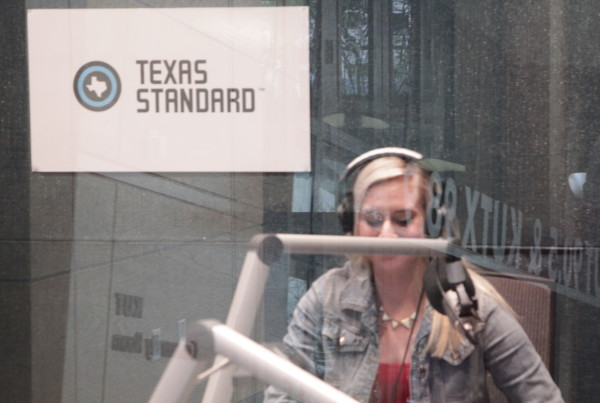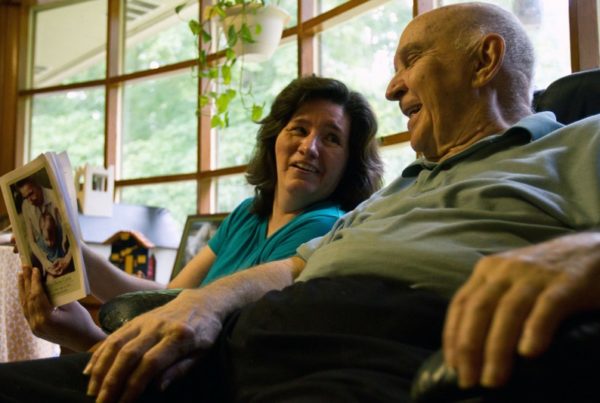The nation is grappling with disturbing news of children separated from their parents at the border as a consequence of President Donald Trump’s “zero tolerance” policy that calls for prosecution of border crossers. In Congress, multiple bills have been filed in response. A proposal by Texas Sen. Ted Cruz calls for doubling the number of immigration judges.
Rep. Vicente Gonzalez, a Democrat from McAllen, says his priorities include keeping family units together during deportation, and expediting the judicial process. But, Gonzalez says, these and other actions at the border are merely Band-Aids.
“One thing that nobody’s talking about is – how did we get here? I believe we got here by failed American policy on those three Central American countries. I think we need to get on the ground and invest in those countries and bring security to those countries and incentivize [immigrants] to stay home,” Gonzalez says.
Gonzalez says the two border bills currently being discussed in Congress are not bipartisan.
“It’s a compromise within the party, with very extreme right-wing Republicans and some that are more moderate,” he says.
Democrats, he says, supported a bipartisan bill. Co-authored by Texas Republican Will Hurd, the Hurd-Aguilar bill, also called the Uniting and Securing America (USA) Act, was a compromise that Gonzalez says could have passed the House and Senate. “Unfortunately, our Speaker blocked it, and we were short two votes on the Republican side. 100 percent of Democrats signed onto that bill.”
Gonzalez says there are other proposals in the Senate that would end family separations, if not address the larger immigration issue. He hopes they will be considered.
“I believe in having good immigration policy that’s followed strictly,” he says. “So if you ask me ‘would you want to have a few more immigration judges that could process folks faster?’ of course I would,” Gonzalez says. “If they’ve got to be deported, they’ve got to be deported. But I think we should do it in a humane manner, and keep them in family units.”
Texas Standard reached out to a number of other Texas lawmakers from the other side of the aisle, including Cruz, but so far none have been available. More details of Cruz’s proposed bill, the Protect Kids and Parents Act, have been released, though.
Ruth Wasem, clinical professor of public policy practice at the University of Texas LBJ School, says Cruz’s proposal isn’t the first effort to increase the number of judges. In May, Attorney General Jeff Sessions said 35 additional assistant U.S. attorneys and 18 immigration judges would be sent to the border to expedite the process.
“But it has not been commensurate with either the increase in the border security enforcement resources, or with the increase in the number of people who have been making credible fear claims at the border,” Wasem says. “So it has not at all kept pace with any other indicators that we would look at.”
Meanwhile, Wasem says, there’s another problem just as pressing.
“The missing piece in all of this is something that would fall in the Department of Homeland Security,” she says, “and that’s to increase the number of asylum officers, because before they even get to an immigration judge – and this is what many of the people who are arriving now are awaiting – is their credible fear determination. That’s something that is handled by U.S. Citizenship and Immigration Services. That’s the first pass that people get and that appears to be the principle bottleneck that we’re seeing along with the families arriving from Central America. Because when you arrive without proper documents, if you express a fear of return, our laws require that you be given a credible fear interview. It’s not a court proceeding. It’s simply an interview where someone who’s trained in the process – again, not a judge, just an adjudicator – who makes that decision, ‘Yes, this person has a credible fear.’ And they can go before a judge. They get their day before an immigration judge. So that first step has to come from Homeland Security. And at this juncture, while Congress has appropriated additional money for judges, there has not been any appropriated increases for asylum officers.”
Wasem says the inadequate number of asylum officers is contributing to the problem of family separation.
“If you’re being charged with a misdemeanor offense and you express a credible fear,” she says. “you’re entitled to a review of your credible fear before you would get a chance to request asylum before a judge. And the way you would be handled is, it shifts you away from immediately being in removal proceedings before a judge, to being in an asylum proceeding before a judge.”
Written by Shelly Brisbin and Jen Rice.















